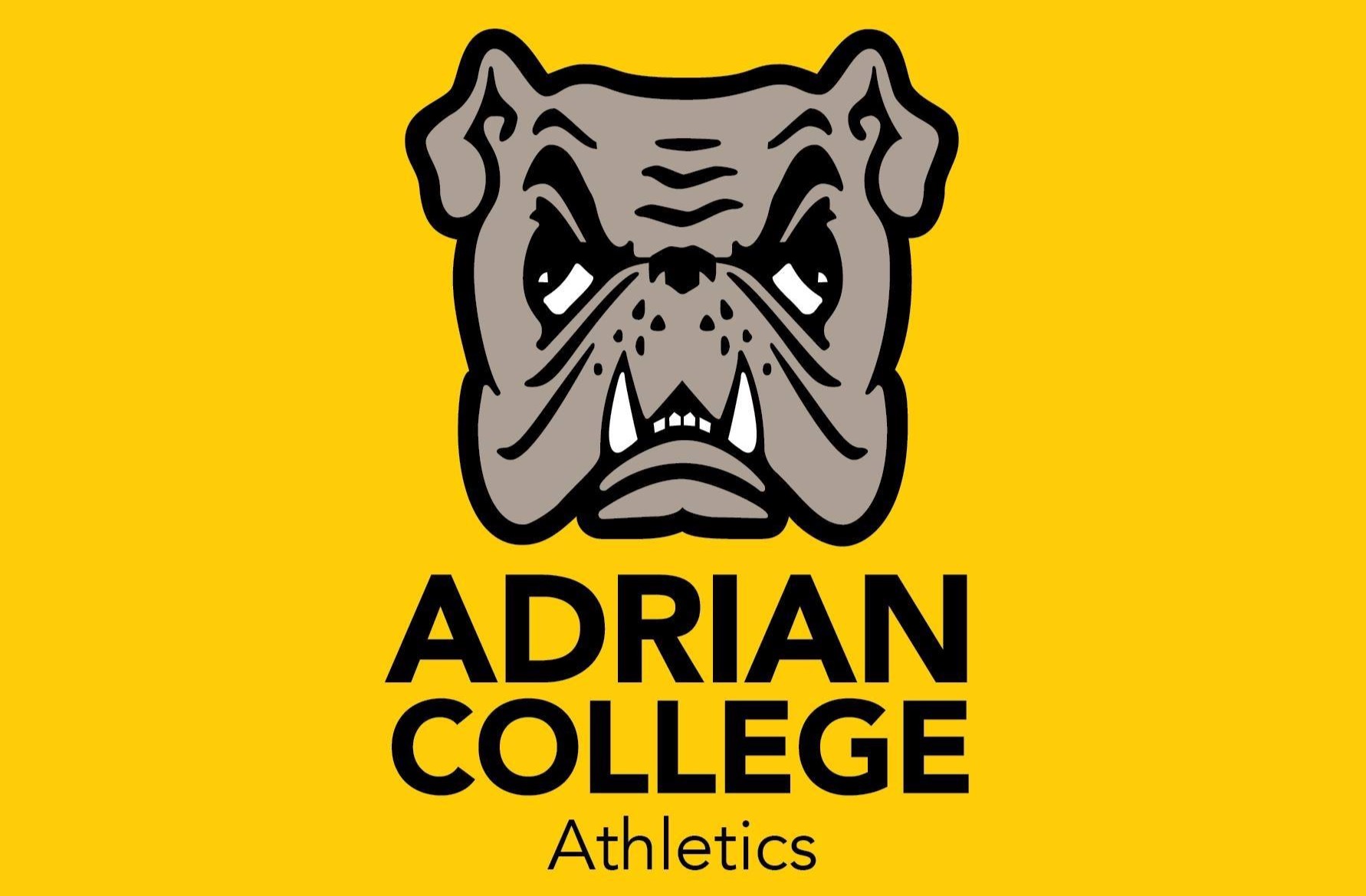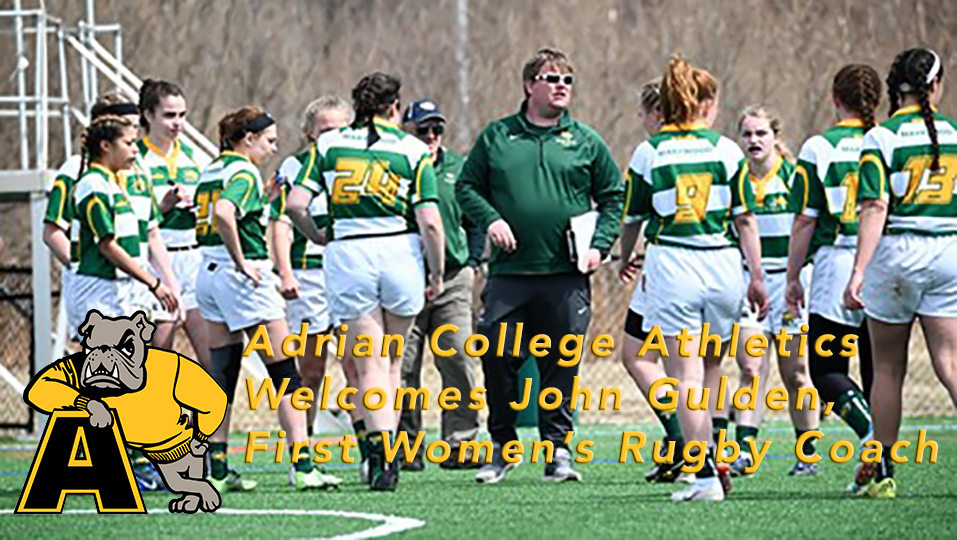
It is difficult to create a completely new rugby program during a global pandemic, but that is precisely what John Gulden is doing at Adrian College (Mich.). Fortunately, the new head coach has experience building a team from the bottom up, and will have the help of a supportive athletic department and the National Intercollegiate Rugby Association (NIRA) to kick off successfully in fall 2021.
RELATED: Adrian Hires Mateialona as Men’s Rugby Head Coach
Gulden started coaching rugby immediately after graduating from Lock Haven University (Pa.), spending two years with the Bald Eagles women’s and then men’s teams. While pursuing a masters in public administration at West Chester University, he apprenticed under Golden Rams head coach Tony DeRemer, who currently holds the NIRA DII National Championship trophy. In 2017, he was named dual head coach of the Marywood University rugby teams, which he brought into existence.
“Marywood and Adrian have a lot of similarities,” Gulden said. “They’re both small DIII schools, and neither had previous club teams on campus. Both made an enrollment-based decision to start the rugby programs, so the first year has to be focused on recruitment. The first year that I worked at Marywood, all I did was recruit high school athletes. There were some kids on campus who were interested – and there are some here at Adrian – but the primary goal is to start bringing new students, especially ones with rugby experience, to kickstart the program.”
Covid-19 changed some elements of Gulden’s position at Marywood, so he had been looking for a new opportunity when Adrian started advertising its coach search. He liked the idea of leading one program – as opposed to the men and women – and his research into the school and the athletic department upped his intrigue.
“I was impressed with the facilities, the support for athletes and the entire athletic department,” Gulden said. “Between varsity and club sports, there are 48 teams including rugby. And there were a lot of unique sports – like bass fishing, equestrian, acrobatics and tumbling – like rugby. I like that they had experience starting sports that weren’t the most popular in the country.
“And they made that clear during the interview process,” Gulden continued. “They knew I wouldn’t be able to recruit where the baseball, basketball or ice hockey coaches can recruit. I might have to branch out and find different pockets of where the rugby players are, and they were in full support of that. They’re putting money into it, too. They already purchased property to build us a field that we’d share with soccer, and a building that will have locker rooms, coaches’ rooms, offices and more. Those plans were already in motion before they hired me, and they’re the things that incoming athletes want to see.”
Adrian named Gulden as head coach of the women’s rugby team in November 2020, and he’s been familiarizing himself with the high school rugby in Michigan, Ohio, Indiana, Illinois and Wisconsin. It’s mostly new territory for Gulden, who recruited as far west as Pittsburgh while at Marywood.
“The biggest thing I learned: Don’t spread myself too thin,” Gulden said of recruitment lessons gleaned from Marywood. “Obviously you need to get a large pool of recruits because you’re only going to get a percentage of the kids you talk to. But if you have too large of a pool you might lose track of kids, or an athlete won’t get the attention they deserve to attract them to your university.
“In terms of best practices, I felt that getting out there and meeting them in person [went a long way],” the coach added. “You can send as many e-mails and texts, and call as much as you want, but nothing replaces getting out there, watching them play and showing them that you want them as part of your program. Coaching at the DIII level, you’re really looking for those student-athletes who want to go to your college not just because of the rugby program, but because it’s the right academic fit.”
Obviously Covid-19 has made the in-person recruitment impossible right now. There was some high school activity this fall in Ohio and Indiana, but those competitions had ended before Gulden was hired. In the meantime, he’s talking to State Rugby Organization leadership and connecting with coaches.
“I’m still learning the area, but the great thing about the community is that it wants to help each other, and everyone’s excited that there’s a new rugby program,” Gulden said.
Adrian was already aligned with NIRA when Gulden was hired. The head coach was familiar with the NCAA varsity league, having submitted a proposal to elevate Marywood to varsity within the last year, and knew the organization would be a valuable resource come fall 2021. As a DIII institution, Adrian’s closest opponent is Alderson Broaddus University, 600 miles away in West Virginia. Notre Dame College (Euclid, Ohio) is the closest NIRA member and a DII program.
“They’re working with us,” Gulden said in regard to competition options. “We might need to do a double-header long weekend in the Northeast, but again, Adrian understands that this is what we need to do.
“But it’s definitely part of the pitch,” the coach said of recruitment. “Come here and be one of the first rugby players ever at Adrian. You get to lay the foundation that players years from now will look up to. You’re part of this history, not just here but also NIRA. We’re the 24th school to join and part of that first 40 [to achieve NCAA championship status].”
If there’s flexibility between USA Rugby, NIRA and National Collegiate Rugby (NCR) then there’s plenty of rugby competition for the foundling team. Between NCR’s Ohio Valley and Great Waters conferences alone, there are more than 40 women’s college teams competing in Michigan, Ohio, Indiana, Illinois, West Virginia and Kentucky.
“If you come to us, you’re going to play, and there’s a good chance you’ll be a starter. Keep your grades up, and that starting position could carry you for four years,” Gulden closed. “And it’s not like starting a club program where students do the leg work. That’s my job as the coach. They just get to be student-athletes and focus on their grades and the field.”
 0
0 0
0